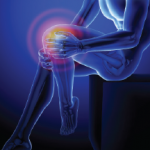 Based on their research findings, Julia C.A. Noorduyn, a PhD candidate at OLVG Amsterdam, the Netherlands, and colleagues conclude that physical therapy should be the preferred treatment relative to surgery for patients with degenerative meniscal tears. In their five-year study, published in July 2022 in JAMA Network Open, exercise-based physical therapy was noninferior to arthroscopic partial meniscectomy in these patients for patient-reported knee function.1
Based on their research findings, Julia C.A. Noorduyn, a PhD candidate at OLVG Amsterdam, the Netherlands, and colleagues conclude that physical therapy should be the preferred treatment relative to surgery for patients with degenerative meniscal tears. In their five-year study, published in July 2022 in JAMA Network Open, exercise-based physical therapy was noninferior to arthroscopic partial meniscectomy in these patients for patient-reported knee function.1
The noninferiority, randomized clinical trial known as Early Surgery vs. Conservative Therapy for Meniscal Injuries in Older Patients (ESCAPE) used the International Knee Documentation Committee Subjective Knee Form to collect and evaluate patient-reported data. Patients with degenerative meniscal tears (N=321) were randomized to receive either arthroscopic partial meniscectomy or physical therapy.
Patients in the physical therapy group received a physical therapist-led incremental exercise program that lasted for eight weeks and consisted of 16 sessions of 30 minutes each. If knee symptoms persisted after the physical therapy program, the patient could attend additional physical therapy sessions or opt for arthroscopic partial meniscectomy based on a shared decision with their orthopedic surgeon.
The Results
During the five-year follow-up period, 32% of patients from the physical therapy group underwent delayed arthroscopic partial meniscectomy. Additionally, the investigators found no significant or clinically relevant difference in patient-reported knee function between patients who received the exercise-based physical therapy and arthroscopic partial meniscectomy. Based on patient-reported knee function as measured by the International Knee Documentation Committee Subjective Knee Form, from baseline to five years, the mean (standard deviation, SD) improvement was 29.6 (18.7) points in the surgery group and 25.1 (17.8) points in the physical therapy group.
Both groups also had small, but comparable rates of progression of radiographic and symptomatic osteoarthritis (OA). However, the authors acknowledge that five years may not be long enough to see progression of knee OA.
When the investigators checked for confounding effects within their primary outcome of patient-reported knee function, their adjusted analyses were consistent with the primary unadjusted results. Thus, the improvement in knee function experienced by patients over the first two years of the ESCAPE trial were maintained at the five-year follow up.2
The study results join and are consistent with previously published trials with five-year, follow-up results for patient-reported knee function and pain.3 They also align with 2013 findings of a study of patients without knee OA and with symptoms of a degenerative medial meniscus tear that found the outcomes after arthroscopic partial meniscectomy were no better than those after a sham surgical procedure.4


